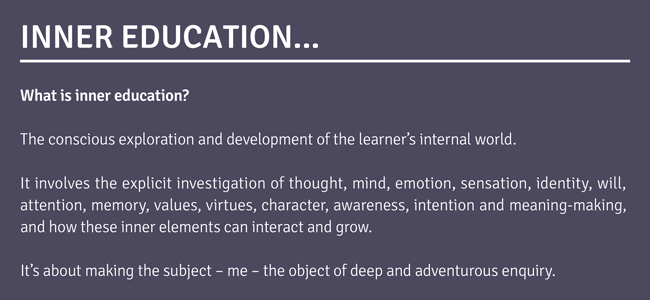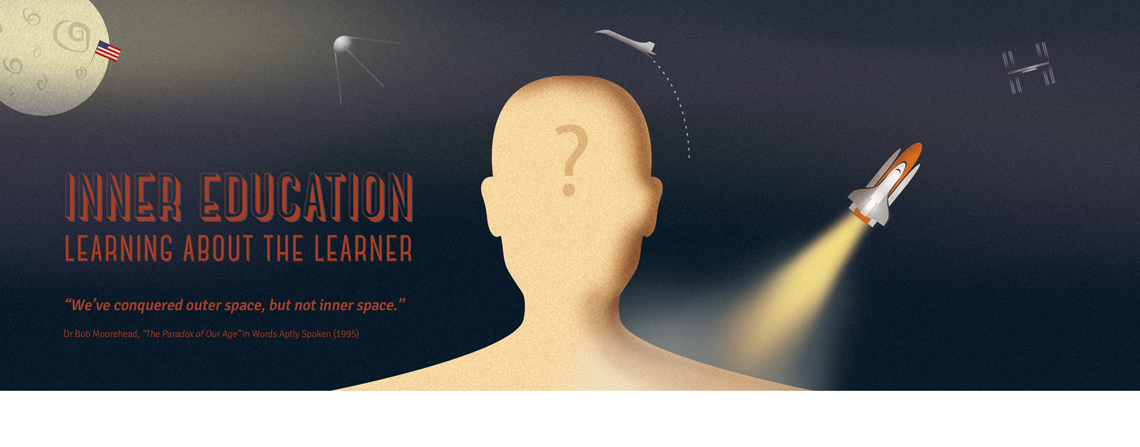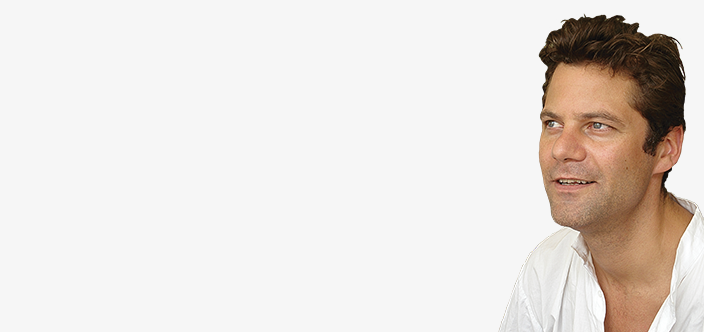Will Ord explores the concept of ‘inner education’, and argues that focusing on how students learn can be just as important, if not more so, than what they learn.
Here’s an idea of how education might evolve in the next few decades.
To introduce it, try this little thought experiment:
As a rough estimate, how many hours did you spend learning about the Tudors at school? What about trigonometry? How about French language? Or how plants reproduce?
Now consider a second set of topics: how many hours did you spend learning about your memory and how it could be trained? Or how your attention span and focus can be directly improved with simple techniques?
If you’re a product of almost any education system, you’ll probably come to the same conclusion as I did: days, weeks, months and years were spent on the former sort of topics, and just minutes – if that – on the latter.
I ‘covered’ the Tudors five times through my school life, and yet didn’t spend a single moment learning how my memory could be trained. That’s like a secretary never learning to touch-type!
Reflecting on the degrees of ‘life relevance’ of these two topic areas, it’s hard not to conclude that something fundamental is missing in the way we teach children. But what exactly is missing?
Inner education?
The vast majority of learning at school focuses on getting young people to know about, understand and interact skilfully with the world around them.
They study maths, history, science, geography, art, languages, literature, and no end of worldly topics in the belief that this will allow them to thrive in work and life. This is, in essence, the primary drive of ‘education’ as we know it.
That drive makes a lot of sense, but it’s only dealing with one half of what learning actually involves. The other half – the learner within – has yet to be fully appreciated and developed as a potent contributor to learning. To redress this balance, I’d advocate inner education, as described in the box below.

“That’s all we need!†I hear colleagues shout, and quite understandably. Right now, we’re in the midst of sweeping curriculum changes, an even tougher Ofsted regime, a brutal squeeze on funding, and a political revolution in school autonomy. Do we really need another educational focus?
Absolutely, and for four key reasons. First, some schools are already beginning to recognise the power and potential of inner education; it’s already on its way, and it’s working.
Second, this ‘fluffy stuff’ has a convincing and rapidly growing scientific research base to back it up.
Third, I’d argue that IE would actually help us all meet the ever increasing demands made upon schools, more effectively and enjoyably. Why ignore a great source of support?
Finally, I believe the challenges of the twenty-first century demand it; ‘schooling for grades’ just isn’t going to cut the mustard. So let’s consider some concrete examples of IE to flesh out these reasons.
One shining example of the effectiveness and potential of inner education is Professor Carol Dweck’s growth mindsets (i.e. how the way we think of ourselves can dramatically affect our ability to learn).
Another lies in the burgeoning area of mindfulness as a way of regulating our feelings, attention and resilience, popularised by Professors Jon Kabat-Zinn and Mark Williams, among others.
Yet another is Professor Nuthall’s extraordinary work, The Hidden Lives of Learners (which discusses what’s actually happening in pupils’ minds and how they learn as a consequence).
All three examples derive from several decades of decent research, and indicate that a focus on the trainable behaviour of the mind has serious potential for adults and children alike.
“But we’re doing this already!â€
Of course, not all school topics are ‘externally’ focused. The National Curriculum and Ofsted requirements explicitly include elements that aim to develop young people personally, such as SMSC (spiritual, moral, social and cultural development) and PSHE (personal, social, health and economic education), as well as a wish list of skills and character traits to die for.
However, my argument here is that our education system’s present concept of – and subsequent provision for – ‘personal development’ falls far short of its freshly emerging potential. We need to appreciate the nature and nurture of the ‘learner within’ in a much more profound way.
If we do so, I believe we will see real gains – not just academically, but socially and emotionally as well. Inner education is, then, a necessary but not sufficient condition for what the ancient Greeks called eudaimonia: the flourishing life.
So where might we start?

Set up an Action Research Team (an ART) in your school to investigate the scope and potential of IE. What could IE include? How could it support your school vision? Where’s the evidence and research to back up the ideas? Present findings in a punchy 15-minute INSET next term.

Connect IE to your curriculum demands. Would it help in PSHE, SMSC, Citizenship, or with classroom behaviour and attitudes towards learning, for example?

Pick one area of particular interest and see if it helps teachers and pupils. Perhaps you could start with Carol Dweck’s growth mindsets (you won’t be left in much doubt!). Or send an interested colleague on a mindfulness course to test out its potential.

Explore areas of IE with students or teachers through philosophical enquiry (P4C). You could explore questions such as: ‘What controls my mind?’, ‘Can intelligence change?’, ‘What makes life meaningful?’ and ‘What is an emotion, exactly?’
In essence, my argument here is that we’re great at studying subjects, but deeply undervalue the subject of study itself. A greater focus on inner education, I believe, could dramatically enhance our flourishing as individuals and communities. SR


